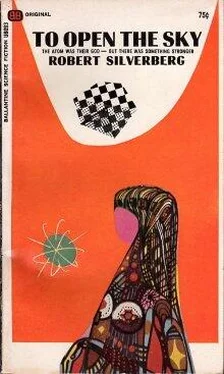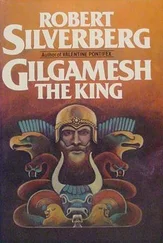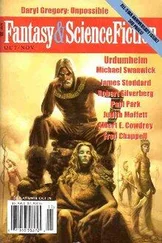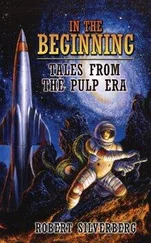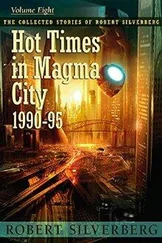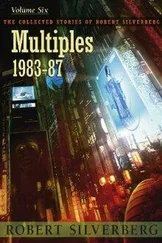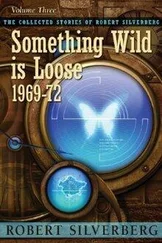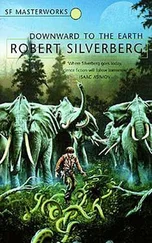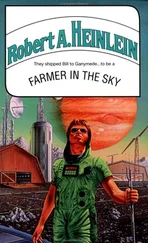Robert Silverberg - To Open the Sky
Здесь есть возможность читать онлайн «Robert Silverberg - To Open the Sky» весь текст электронной книги совершенно бесплатно (целиком полную версию без сокращений). В некоторых случаях можно слушать аудио, скачать через торрент в формате fb2 и присутствует краткое содержание. Год выпуска: 1967, Издательство: Ballantine Books, Жанр: Фантастика и фэнтези, на английском языке. Описание произведения, (предисловие) а так же отзывы посетителей доступны на портале библиотеки ЛибКат.
- Название:To Open the Sky
- Автор:
- Издательство:Ballantine Books
- Жанр:
- Год:1967
- ISBN:нет данных
- Рейтинг книги:5 / 5. Голосов: 1
-
Избранное:Добавить в избранное
- Отзывы:
-
Ваша оценка:
- 100
- 1
- 2
- 3
- 4
- 5
To Open the Sky: краткое содержание, описание и аннотация
Предлагаем к чтению аннотацию, описание, краткое содержание или предисловие (зависит от того, что написал сам автор книги «To Open the Sky»). Если вы не нашли необходимую информацию о книге — напишите в комментариях, мы постараемся отыскать её.
To Open the Sky — читать онлайн бесплатно полную книгу (весь текст) целиком
Ниже представлен текст книги, разбитый по страницам. Система сохранения места последней прочитанной страницы, позволяет с удобством читать онлайн бесплатно книгу «To Open the Sky», без необходимости каждый раз заново искать на чём Вы остановились. Поставьте закладку, и сможете в любой момент перейти на страницу, на которой закончили чтение.
Интервал:
Закладка:
Martell could find nothing in the Harmonist scriptures that was actually discreditable to Vorst. Even the assassination of
Lazarus itself clearly was shown to be the work of underlings, carried out without Vorst’s knowledge or desire. And through the writings ran an expression of hope that one day the faith would be reunited, though it was stressed that the Harmonists must submit to unity only out of a position of strength, and in complete equality.
A few months before, Martell would have regarded their pretensions as absurd. On Earth they were a pip-squeak movement losing members from year to year. Now, among them if not entirely of them, he saw that he had badly underestimated their power. Venus was theirs. The high-caste natives might boast and swagger, but they were no longer the masters. There were espers among the downtrodden lower-caste Venusians—pushers, no less—and they had given their destinies into Harmonist hands.
Martell worked. He learned. He listened. And he feared.
The stormy season came. From the eternal clouds there burst tongues of lightning that set all Venus ablaze. Torrents of bitter rain flailed the flat plains. Trees five hundred feet tall were ripped from the ground and hurled great distances. From time to time, high-casters arrived at the chapel to sneer or to threaten, and in the shrieking gales they roared their blustering defiance, while within the building grinning low-caste boys waited to defend their teachers if necessary. Once Martell saw three high-caste men thrown twenty yards back from the entrance as they tried to break in. “A stroke of lightning,” they told one another. “We’re lucky to be alive.”
In the spring came warmth. Stripping to his alien skin, Martell worked in the fields, Bradlaugh and Lazarus beside him. He did not yet teach at all. He was well versed by now in the Harmonist teachings, but it was all from the outside in, and a seemingly impermeable barrier of skepticism prevented it from getting deeper.
Then, on a steamy day when sweat rolled in rivers from the altered pores of the four former Earthmen at the Harmonist chapel, Brother Leon Bradlaugh joined the blessed company of martyrs. It happened swiftly. They were in the fields, and a shadow crossed above them, and a silent voice within Martell screamed, “Watch out!”
He could not move. But this was not his day to die. Something plummeted from the sky, something heavy and leather-winged, and Martell saw a beak a yard long plunge into Bradlaugh’s chest, and there was the fountaining of coppery blood. Bradlaugh lay outstretched with the shrike on him, and the great beak was withdrawn, and Martell heard a sound of rending and tearing.
They gave the last rites to what was left of Bradlaugh. Brother Christopher Mondschein presided, and called Martell to his side afterward.
“There are only three of us now,” he said. “Will you teach, Brother Martell?”
“I’m not one of you.”
“You wear a green tunic. You know our creed. Do you still think of yourself as a Vorster, Brother?”
“I don’t know what I am,” answered Martell. “I need to think about this.”
“Give me your answer soon. There’s much to be done here, Brother.”
Martell did not realize that he would know within a day where he really stood. A day after Bradlaugh’s funeral the regular thrice-weekly passenger ship from Mars arrived. Martell knew nothing of it until Mondschein came to him and said, “Take one of the boys in the car, and do it quickly. A man needs saving!”
Martell did not ask questions. Somehow, news had traveled down a chain of espers, and it was his task simply to obey. He entered the car. One of the little Venusian acolytes slipped in beside him.
“Which way?” Martell asked.
The boy gestured. Martell thumbed the starter. The car sped down the road, toward the airport. When they had gone two and a half miles, the boy grunted a command to halt. The car stopped.
A figure in a blue tunic stood by the side of the road, his back to the bole of a mighty tree. Two suitcases lay open on the high-way, and a razor-backed beast with a flattened snout and boar-like tusks was rooting through them, while its mate charged the newly arrived Vorster. The beleaguered man was kicking and lashing at the beast.
The boy hopped from the car. Without sign of strain, he caused the two animals to rise and slam into trees on the far side of the road. They dropped to the ground, looking dazed but determined. The boy levitated them again and struck their heads together. When they fell this time, they swung around and fled into the underbrush.
Martell said, “Venus always seems to welcome new-corners like that. My greeting committee was a thing called a Wheel, which I hope you never meet. I’d be in ribbons now except that a Venusian boy was kind enough to teleport it over on its side. Are you a missionary?”
The man seemed too dazed to reply immediately. He knotted his hands together, released them, adjusted his tunic. Finally he said, “Yes—yes, I am. From Earth.”
“Surgically changed, then?”
“That’s right.”
“So am I. I’m Nicholas Martell. How are things in Santa Fe, Brother?”
The newcomer’s lips tightened. He was a fleshless little man, a year or two younger than Martell. He said, “How can that matter to you if you’re Martell? Martell the heretic? Martell the renegade?”
“No,” Martell said. “That is—I—”
He fell silent His hands tensely smoothed the fabric of his Harmonist green tunic. His cheeks were burning. He realized painfully the truth about himself—that the change in him had worked inward from without—and suddenly he could not meet the gaze of his altered successor in the Venus mission, and he turned, staring into the thicket of the no longer very alien forest.
Four
Lazarus Come Forth
2152
one
Mars Monotrack One, the main line, ran from east to west like a girdle of concrete flanking the planet’s western hemisphere. To the north lay the Lake District with its fertile fields; to the south, closer to the equator, was the belt of throbbing compressor stations that had done so much to foster the miracle. The discerning eye could still make out the old craters and gouges of the landscape, hidden now under a dusting of sawtooth grass and occasional forests of pine.
The gray concrete pylons of the monotrack marched to the horizon. Spurs carried the line to the settlements of the outlands, and they were always adding new spurs as the new settlements sprouted. Logistically, it might have been simpler to have all the Martians live in One Big City, but the Martians were not that sort of people.
Spur 7Y was being added now, advancing in ungainly bounds toward the new outpost of Beltran Lakes. Already the pylon foundations had gone up three-quarters of the way from Mono One to the settlement; a vast pylon-layer was working its way through the countryside, gobbling up sand from ten yards down and spewing out concrete slabs that it stapled into the ground. Gobble, spew, staple, and move on—gobble, spew, staple. The machine moved rapidly, guided by a neatly homeostatic brain that kept it on course. Behind it came the other machines to lay track between the pylons and string the utility lines that would follow the same route. The Martian settlers had many miracles at their command, but microwave kickover of usable electric power wasn’t one of them—not yet—and so the lines had to get strung from place to place even as in the Middle Ages.
The monotrack system was intended for heavy-duty transportation. The Martians used quickboats, like everybody else, for getting themselves from place to place. But the slim little vehicles weren’t much use in the shipment of construction materials, and this was a planet under construction. Now that the reconstruction phase was over. The Terraformers were gone. Mars was a bosky dell, here in this year of grace 2152, and now the task was to plant a civilization on the finally hospitable planet. The Martians numbered in the millions. They had passed their frontiersman stage and were settling down to enjoy the pleasures of a good commercial boom. And the monotrack marched on, mile after mile, skirting the seas, rimming the lakes and rivers.
Читать дальшеИнтервал:
Закладка:
Похожие книги на «To Open the Sky»
Представляем Вашему вниманию похожие книги на «To Open the Sky» списком для выбора. Мы отобрали схожую по названию и смыслу литературу в надежде предоставить читателям больше вариантов отыскать новые, интересные, ещё непрочитанные произведения.
Обсуждение, отзывы о книге «To Open the Sky» и просто собственные мнения читателей. Оставьте ваши комментарии, напишите, что Вы думаете о произведении, его смысле или главных героях. Укажите что конкретно понравилось, а что нет, и почему Вы так считаете.
